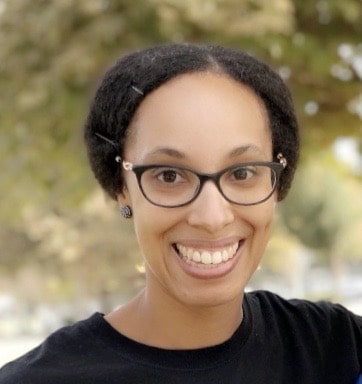Online Course
Food Writing: A Tasting Menu
September 12 - November 20, 2022
Level Intermediate
Sample a new subgenre of food writing every two weeks.
In this ten-week course, we will follow the path laid out in Dianne Jacob’s food writing manual, Will Write for Food.
Additional Information
In her national bestseller Julie & Julia: My Year of Cooking Dangerously, Julie Powell embarks on a year of cooking her way through all 524 recipes in Julia Child’s cookbook Mastering the Art of French Cooking. In this ten-week course, we will undertake a food writer’s version of Powell’s feat: following the path laid out in Dianne Jacob’s food writing manual, Will Write for Food.* Every two weeks, we will taste test a new subgenre of food writing. We’ll gain inspiration from food writing published in magazines such as Taste, Kitchn, and Bon Appétit. By the end of the course, you will have drafted a portfolio of food writing—including a post for a food blog, a restaurant review, a concept for a cookbook, recipes, and a personal essay on food.
*Please note, there is no need to buy this book; we’ll be using it as a road map/inspiration and not as a textbook. However, if you would like to purchase the book, you can find it on Bookshop.org.
Course Schedule
Week 1: Introduction + Writing for Food Blogs Part 1
We’ll begin with an overview of the food writing genre and an introduction to our guidebook, Will Write for Food. Then, we’ll delve into food blogging by studying some successful examples. You’ll also have the opportunity to pitch ideas for a food blog post.
Week 2: Writing for Food Blogs Part 2
This week, we’ll continue outlining the do’s and don’ts of successful food blogs and studying examples of posts from professionals in the field. Then, you’ll submit a 1500-word blog post for peer and instructor feedback.
Week 3: Writing Restaurant Reviews Part 1
If you’re going to call yourself a food writer, you’ll want to be sure to include at least one restaurant review on your resume. This week, we’ll dig into the ins and outs of writing restaurant reviews and look at published examples. You’ll pitch ideas for a restaurant review you want to write.
Week 4: Writing Restaurant Reviews Part 2
This week, we’ll continue discussing what it takes to write a successful restaurant review for different types of publications. Then, you’ll submit a 1500-word restaurant review for peer and instructor feedback.
Week 5: Writing for Cookbooks Part 1
Publishing a cookbook is the dream of many food writers. This week, we’ll talk about what it takes to write a cookbook. And you’ll pitch ideas for the cookbook you’ve always wanted to write.
Week 6: Writing for Cookbooks Part 2
Next, we’ll continue our discussion of cookbooks by looking at excerpts from some of the most successful ones to hit the market in recent years. Then, you’ll submit a concept for a cookbook.
Week 7: Writing Recipes
“Recipe Developer” is a trendy new job description in the food media world. This week, we’ll discuss how to write recipes for an audience, and we’ll examine published examples. You’ll submit a few recipes for peer and instructor feedback.
Week 8: Writing Food Memoir and Nonfiction Part 1
Next up, we’ll explore the role food memoirs and nonfiction books play in the food writing world. We’ll look at published essays and book excerpts for inspiration. You’ll pitch some story ideas of your own.
Week 9: Writing Food Memoir and Nonfiction Part 2
This week, we’ll continue discussing how to write captivating food memoirs and nonfiction books. You’ll submit a 1500-word story for peer and instructor feedback.
Week 10: Freelancing & Publishing
During our final week, we’ll discuss tips for freelancing as a food writer. We’ll also talk about the world of publishing and how to submit your writing to food publications.
Course Instructor
Hear from our Students
Creative Nonfiction’s online writing classes have helped more than 3,000 writers tell their stories better.
Read Success StoriesTestimonials
I enjoyed reading other peoples work and getting feedback about my own work– the handouts/video links and class lessons were also very informative and relevantly paced to the give structural guidelines.
Catherine O’Neill

